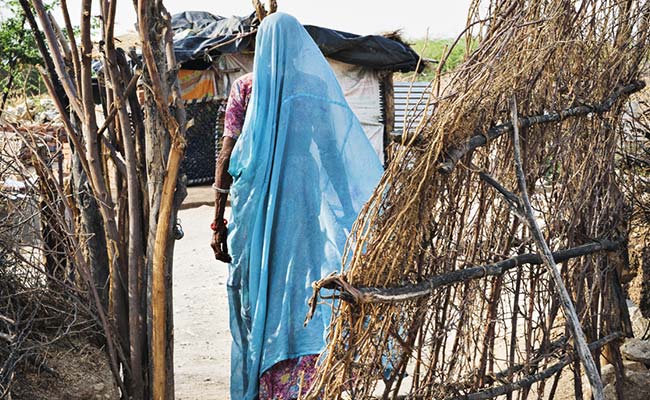
In an important decision recently, the Madhya Pradesh High Court ruled that the consent of spouse is not compulsory for live organ donation. The court directed the authorisation committee of a Bhopal hospital, which had insisted on an NOC (no objection certificate) from a woman's husband, to process the formalities for the donation of her kidney to her brother. The court pronounced that there is no provision in the Transplantation of Human Organs & Tissues Act, 1994, for the consent of spouse.
This indeed is a welcome ruling in an area where gender discrimination is high. Women constitute the majority of living organ donors but receive fewer organ transplants compared to men.
What The Law Says
The Transplantation of Human Organs & Tissues Act, 1994, regulates organ transplants and bans the illegal trade of organs and tissues. This legislation was meant to provide a comprehensive legal framework to regulate the removal of organs from living as well as deceased persons.
Among other types of organ donations, the Act provides for living donation, which defines who can donate without any legal formalities. The people who are allowed to donate include the mother, father, brothers, sisters, son, daughter, and spouse of a person. In 2011, the Central government introduced an amendment to the Act, which allows the swapping of organs and widens the donor pool by including grandparents and grandchildren in the list.
The authorisation committee regulates living donor transplantation by reviewing each case to ensure that the living donor is not exploited for monetary considerations and to prevent commercial dealings in transplantation. In the event of there being no first relatives, the recipient and donor are required to seek special permission from the government-appointed authorisation panel.
Skewed Donor Ratio
As many as 80% of living organ recipients in India are men, while four out of five living donors are women - mostly wives and mothers. According to the data gathered by the National Organ and Tissue Transplant Organisation (NOTTO) between 1995 and 2021, out of the total 36,640 patients who underwent transplants, 29,695 were men. This reflects a glaring gender imbalance.
Medical conditions that may require organ transplants affect men and women equally. Yet, data shows the number of women seeking organ transplants is excessively low. Most women are ready to offer their organs to their sick husbands to save their lives, but the reverse rarely happens. Such is the deep-rooted patriarchal bias in society.
The Ground Reality
Despite the law being clear on 'spousal consent', problematic cases are heard every year in several high courts of the country. Irrespective of gender, the High Courts in the past have ruled that the legal framework of the Transplantation of Human Organs Rules does not mandate any NOC from a spouse or any relative. In May 2022, in an identical case, the Delhi High Court had said that "woman is not a chattel. It is her body".
"The MP court ruling signals a step towards rectifying the gender imbalance in organ donation. By acknowledging a woman's autonomy over her body, it empowers her to make decisions beyond marital boundaries," says Mohin Priya, a Supreme Court advocate. "This ruling could catalyse a shift in societal perceptions, fostering a culture where women's choices are respected and valued, especially in matters of health and consent, by reinforcing that a woman's right to be in control of her body is a personal and inalienable right and cannot be subject to the consent of the spouse," she adds.
The 'Sacrificing' Role
Our courts may have been commendable in reiterating and defining women's rights, but social conditioning often hampers the exercising of those rights. Low female literacy rate, socio-economic pressures and deeply entrenched patriarchal ideas are only a few reasons why women make 'sacrifices', conditioned as they are to act as the sole caregivers of the family. Obviously, women end up volunteering for organ donation when crisis befalls anyone in the family.
"Addressing gender disparities in organ transplantation requires addressing the underlying societal norms and structures that perpetuate inequality. This includes promoting gender equality, empowering women to make informed decisions about their own health and well-being, and challenging patriarchal attitudes that prioritise the needs of men over women," says Pallavi Kumar, Executive Director of MOHAN Foundation, which has facilitated hundreds of organ transplants in the country.
Most importantly, with men being the sole earners in a majority of family, wives/mothers consider such huge sacrifices their 'responsibility'. The fear of loss of income upon being indisposed for a long time following organ donation also prevents men from volunteering for it.
Regardless of the self-sacrificing nature of women, when it comes to volunteering to help someone from her birth family, hospitals demand an NOC from the husband because a married woman is deemed the husband's 'property'.
The Need For Reforms
"Legally, ensuring equity in organ donation mandates comprehensive reforms. Introducing stringent guidelines that prioritise individual autonomy irrespective of marital status is crucial. Additionally, implementing awareness campaigns to educate both healthcare professionals and the public about the importance of consent and gender equality in organ donation is imperative. Legislative measures should be enacted to safeguard the individual's rights to make informed decisions regarding her body," says Priya.
In India, the potential for organ donation from deceased persons is huge due to the high number of fatal road traffic accidents, and this pool is yet to be tapped. "An increase in deceased organ donation is a significant solution in the long run. Also, 'Donor Advocates', like in the West, is the need of the hour. They play a crucial role in protecting the interests of the donor, more specifically female organ donors, ensuring their rights, well-being, and autonomy are respected throughout the donation process," suggests Kumar.
(Bharti Mishra Nath is a senior journalist)
Disclaimer: These are the personal views of the author
Track Latest News Live on NDTV.com and get news updates from India and around the world


